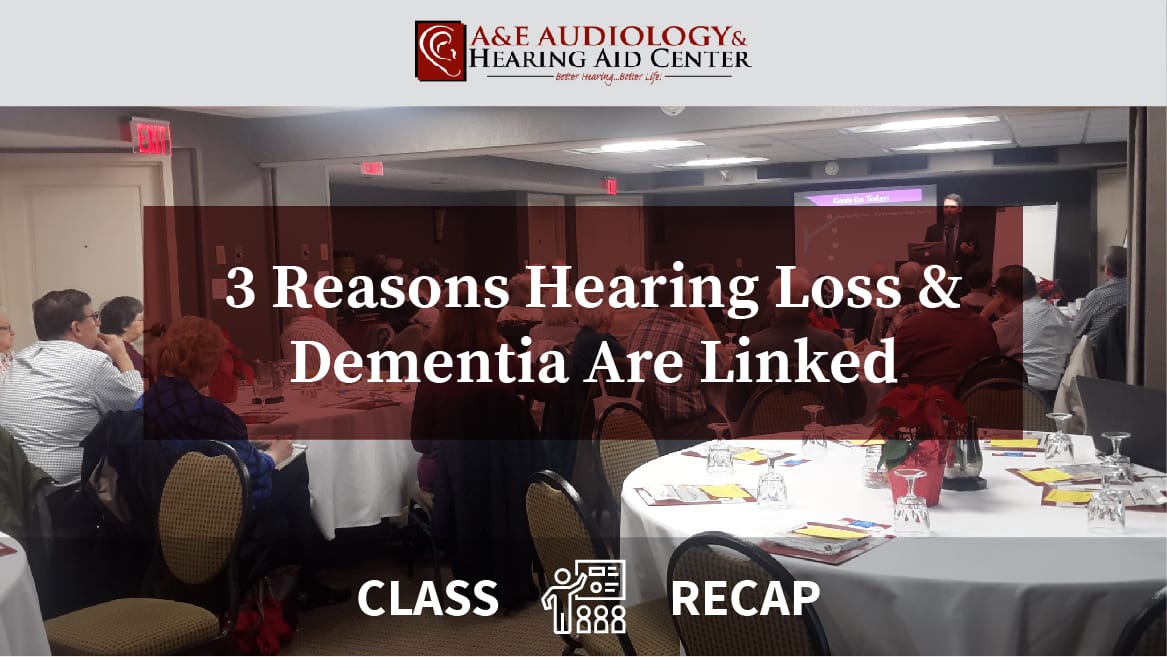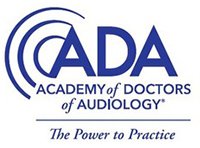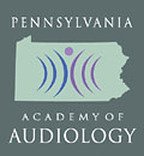Strasburg, PA Hearing Doctor Shares 3 Reasons Hearing Loss & Dementia are Linked (and what you can do about it)
Hearing Loss and Dementia Are Linked – What You Can Do to Reverse It?
Three out of 10 people over the age of 60 have hearing loss. “Age-related hearing loss is very treatable, but largely ignored” says Dr. Kamal Elliot of A&E Audiology.
Those with hearing loss have a 200-500% increased chance of developing dementia. But how exactly are the two connected? Hearing loss can cause you to have a lower quality of life. You might experience feelings of isolation, have reduced social activity, symptoms of depression, or even experience cognitive decline.
Dementia is a decline in mental ability severe enough to interfere with your daily life. Memory, communication and language, ability to focus and pay attention, reasoning and judgement, and visual perception are all things that can be affected.
Age-related hearing loss is very treatable, but largely ignored.
Tweet This
Our ears do the work of providing sound stimulation, our brain does the hearing. Ears collect the sound, but our brain has the job of focusing and interpreting the sounds we hear.
Dementia and hearing loss are uniquely linked, and here’s why.
1. Decreased communication with others, or social isolation.
Helen Keller once said, “Blindness separates you from things. Deafness separates you from people.”
A symptom of dementia is a deficit in communication and language. With a hearing loss, we think of ourselves as a burden to others, excuse ourselves from social gatherings, and stop connecting with people we love and care about. This social isolation ultimately results in using your brain less.
Bottomline, if you don’t use it, you lose it.
2. Loss of nerve cells in the brain, or cerebral atrophy (brain shrinkage).
The cochlea, a hollow tube in the inner ear, contains hair cells that allow us to detect and interpret noises. When we lose one hair cell, we then lose 30 auditory nerve fibers. Then, we lose tens of thousands of neurons in the brainstem, as well as hundreds of thousands, even MILLIONS, of nerve cells in the brain.
As much as 40% of our hearing, speech, language, and memory parts of the brain deteriorate as a result of hearing loss!
3. Hearing loss puts too much stress on the brain, also called brain overload.
If you have a hearing loss, your brain works harder than it’s used to. Those who experience hearing loss often say they are exhausted at the end of the day.
In light of all of this, what can we do about it? Can we reverse the effects of hearing loss and its link to dementia?
Yes! It’s simple, treat your hearing loss with proper care, just as you would treat any other serious health ailment. And the sooner you treat it, the less likely you’ll feel the effects of dementia.
A recent study from the University of Texas El Paso has proven that getting fitted for and wearing hearing aids improves memory and brain function in as little as two weeks. It’s worth a try, don’t you think?
Dr. Darrow, owner of Hearing and Balance Centers of New England, said it best: “Aging is inevitable. Decline is an option. What do you choose?”
Make an appointment with A&E Audiology today, and we will work with you to evaluate your hearing and develop a treatment plan that includes brain training, scientific real ear measurement, adaptive treatment processes, a live speech mapping analysis, and a verification of results. We promise a 100% clarity guarantee.
As much as 40% of our hearing, speech, language, and memory parts of the brain deteriorate as a result of hearing loss! Tweet This
Annamae, a patient of A&E Audiology, and her husband drove three hours from Scranton, Pennsylvania to attend the A&E Audiology Brain Hearing Symposium. She has hearing aids, her husband does not. They left our symposium not only more educated, but enthused about their decision to treat Annamae’s hearing loss.
Annamae says the symposium was “extremely informative, and (they were) really happy that we came.”
Dr. Darrow is the owner of Hearing and Balance Centers of New England and a professor at Worcester State University. He is a research associate at Massachusetts Eye and Ear Infirmary. Dr. Darrow graduated from MIT and Harvard with a doctorate in neuroscience.
The content of this blog was from our free monthly class which is designed to educate the community about all aspects of hearing healthcare. We look forward to seeing you at the next class.


















